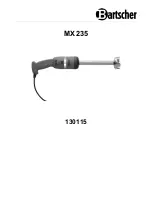
IN THE STUDIO
A. Essentials & Ergonomics
Think about room layout and equipment. No, we’re not
going to plan your studio for you, but here are a few
pointers:
• If you play keyboards, set them up so that you can reach
the mixer.
• Position your effects and synth modules within arms
length.
• If you use a computer, position the screen so as to avoid
reflections. Do not position speakers near the screen
unless they are magnetically compensated or shielded.
• If the room is too ‘live’, deaden it with drapes or soft
furnishings.
• For best results, use dedicated nearfield monitors.
• Don’t use large speakers in a small room - they’ll sound
wrong at low frequencies.
• Do use a well specified power amp (minimum 50 watts
per channel).
• Don’t compromise on a weedy amp: it will distort at high
levels and may damage the speakers.
B. Tape Machines &
Recording Media
Basically, you’ll need two types of tape machine: a
multitrack recorder
for recording the individual parts of
the performance in readiness for mixdown onto a
2-track
recorder
for mastering. There are both analogue and digital
models available. The final choice must be based on
individual requirements.
C. The Console
Studio work presents additional problems for a mixing
console in that it has to deal with a two stage process
requiring very different skills.
1 Recording - Sound sources have to be captured on
multitrack tape. This process will include ensuring that the
cleanest strongest signal is being recorded to tape, without
overload and distortion, optimising the sound of the
recorded signal with EQ, signal processing and effects,
monitoring the recorded sources, and creating a headphone
mix for the musicians to ensure the best possible
performance from them.
2 Mixdown - All the recorded sound sources as well as any
“live” media coming from sequencers, drum machines or
samplers must then be blended together using EQ, level,
pan and effects and mastered down to a two-track device to
create a “final mix”. This process bears some similarities to
mixing a band - minus the audience, the live performance
and poor venue acoustics!
If you have seen any T.V. shows including footage of
commercial recording studios you may be forgiven for
thinking that good multitrack recordings are only possible
using a mammoth console. This does not have to be the
case! Professional sounding results can be achieved, albeit
with some repatching between recording and mixdown
stages, using a relatively small multipurpose mixer.
However, to achieve professional results the mixer must be
equipped with either (and preferably both):
• Direct outs
• Groups/Subs
When purchasing a console for both live and recording
work, ensuring these facilities are available will save you
having to buy a dedicated recording console until your
requirements become more sophisticted.
SECTION 6: In the Studio
25
13924 Inners 7/8/01 2:56 pm Page 25
Summary of Contents for Spirit SX
Page 38: ...Notes 38 ...
Page 40: ...40 ...
















































